- Home
- Diane Capri
Secret Justice
Secret Justice Read online
Praise for
Bestselling Author
Diane Capri
“Full of thrills and tension, but smart and human, too. Kim Otto is a great, great character. I love her.”
- Lee Child,
#1 New York Times Bestselling Author of Jack Reacher Thrillers
“[A] welcome surprise....[W]orks from the first page to ‘The End’.”
- Larry King
“Swift pacing and ongoing suspense are always present...[L]ikable protagonist who uses her political connections for a good cause...Readers should eagerly anticipate the next [book].”
- Top Pick, Romantic Times
“...offers tense legal drama with courtroom overtones, twisty plot, and loads of Florida atmosphere. Recommended.”
- Library Journal
“[A] fast-paced legal thriller...energetic prose...an appealing heroine...clever and capable supporting cast...[that will] keep readers waiting for the next [book].”
- Publishers Weekly
“Expertise shines on every page.”
- Margaret Maron,
Edgar, Anthony, Agatha and Macavity Award Winning MWA Past President
Also by DIANE CAPRI
Jess Kimball Series:
Fatal Distraction
Fatal Enemy (short story)
Hunt for Reacher Series:
Don’t Know Jack
Jack in a Box (short story)
Jack and Kill (short story)
Justice Series:
Due Justice
Twisted Justice
Secret Justice
Wasted Justice
Raw Justice
Mistaken Justice (short story)
For Ophie
CAST OF PRIMARY CHARACTERS
Judge Wilhelmina Carson
James Harper
Suzanne Harper
Margaret Wheaton
Ronald Wheaton
Armstrong Otter
Dr. Marilee Aymes
Gilbert Kelley
Sandra Kelley
Chief Ben Hathaway
State Attorney Michael Drake
Chief Ozgood Livingston Richardson (Oz or CJ)
Larry Davis
George Carson
PROLOGUE
Tampa, Florida
Sunday, 3:00 a.m.
February 18, 2001
MIGUEL STRUGGLED TO TURN the corner at Seventh Avenue and Sixteenth Street. He grunted with effort as he pushed a heavy plastic trash barrel on wheels, piled high with garbage. The cleaning crew had been working on the streets in Tampa’s Ybor City since the parade ended and the crowd finally dispersed about one a.m. Miguel had a lot of clean up to do before the small businesses along the brick paved streets opened.
Who would believe these rich Americans could be such pigs? Miguel thought. In his country where people were poor, maybe, but not in Florida, “land of flowers.” In his country, people weren’t tidy like they were here, he’d noticed. Tampa was a clean place. Nice. Miguel wanted to stay here, with his father’s family. He liked Tampa.
Miguel bent his head to his task, left hand bracing the garbage towering perilously higher than the five-foot barrel should hold. He felt stretched to his limit. He couldn’t see the ground in front of the small wheels that seemed to catch on every crack in the old sidewalk.
A beer can clattered as it hit the ground. Miguel stooped to pick it up, along with a few candy wrappers that fell off the pile when the barrel stopped rolling. “Pigs,” he spat again, as he leaned his weight into the barrel and got it moving again.
Watching the ground as he walked, Miguel tried to stay close to the buildings because the sidewalk sloped toward the street and he couldn’t control the trash barrel if the small wheels started downhill.
He wasn’t in any mood for delay. He had been picking up beer cans, beads, condoms, half-eaten candy and other human trash from the old urine stenched streets for the past three hours. Miguel was cold and tired. His eyelids felt heavy, scratchy, when he allowed them to close for a few seconds. He wanted to finish his work as quickly as possible and go home. Miguel gave the barrel a mighty shove and smiled to himself as it began to move more quickly.
Suddenly, the left front wheel of the can struck something on the sidewalk. The force and speed of Miguel’s efforts pushed the barrel toward the building on the right. It bumped into the building and bounced back. The rebound blow caught Miguel off guard and nearly knocked him down. Several beer bottles fell to the ground with a loud crash, brown and green glass shards flying everywhere. One sharp edge caught Miguel’s cheek and he felt the burning scratch as the piece of glass sailed past.
Wiping the blood off his face with a grimy work glove, Miguel cursed himself for not paying attention. Impatiently, he pushed the heavy barrel, trying to straighten its path again and avoid the problem in the sidewalk. He would clean up the broken glass on the way back, he thought, his anxiety mounting.
Miguel had been on his way to the large dumpster in back of Maria’s restaurant so that he could dump the barrel and start again. His boss had yelled at him twice already. Miguel didn’t have time to fool around. This was his first week on the job and he was on probation. He couldn’t make his boss angry. He needed this job if he was to stay in this country.
Miguel put both hands on the middle of the plastic barrel, braced himself with one foot against the building, and pushed harder.
The trash barrel pivoted on its left wheel. It turned slightly and the right side rolled downhill on the sloped sidewalk. And stopped. Now both front wheels seemed to be stuck by a block of some kind. Miguel wailed in frustration, but the barrel didn’t move.
Miguel wanted to make as few of these trips to the dumpster as possible, to finish quickly, make his supervisor proud. But he’d piled the barrel too full. A stupid mistake, he realized too late.
The barrel was close to the building and seemed wedged into a hole or something now. Miguel couldn’t back up. Nor could he see in front of the barrel to try to go around the blockage.
Miguel shoved the barrel with all of his strength. Instead of rolling over whatever was blocking its path, the barrel tilted wildly and fell forward, spilling its contents across the sidewalk and into the street.
Shouting a loud stream of Spanish curses, Miguel jumped back as every foul liquid left over from the parade splashed all over his clothes. He swiped ineffectively at the stinky, gooey mess that now covered his overalls. He was drenched through to his tee-shirt and jeans. He could feel the cold as his shirt stuck to his narrow chest.
Still cursing, Miguel walked around to the side, righted the barrel and moved it off the pile of garbage that now covered everything within a two-foot radius. Miguel found the shovel that was knocked off the hook on the side of the barrel when it fell and began to toss the garbage back into the trash can, cursing with every stroke.
On the fourth scoop, his shovel hit something solid on the ground, under the slop the barrel had spewed. The stroke of his shovel against the solid lump jarred his arms sending a sharp pain up to his shoulders. Miguel let out a new and more heartfelt stream of outraged curses.
He bent down from the waist, trying to see what was causing him such a problem without actually touching the disgusting pile. In the vague light from the street lamps, the big lump looked like another pile of garbage. But Miguel thought not. He could see something bright and colorful on the ground. And this pile, even though his trash barrel had been too full, was too high.
Miguel had run across two previous drunken revelers on his route tonight. Now, he could see that this lump on the ground was a third pirate. Causing him so much trouble, making him late. His boss would be very angry. “Americanos!” Miguel spat, giving the lump a sharp, rough nudge with the toe of his heavy wo
rk boot. The lump didn’t move.
Miguel removed his glove, reached into his pocket for his flashlight. Re-gloved, he stooped down and swept the garbage off the pirate, pushing aside the slop. When Miguel saw the man’s costume, his impatience and anger returned. These Americanos seemed to have nothing better to do than to party themselves into a stupor while hard-working Latinos cleaned up after them, he complained under his breath.
“Wake up, señor. Wake up,” Miguel said, shaking the man as roughly as he could, given the disparity in their sizes. The drunk didn’t stir. Miguel almost left him there then, to sleep it off, but something about the man didn’t look right. Miguel bent toward him and shook the pirate again, imploring him to wake up and move along. Just then, the angry supervisor came around the corner.
“Miguel, where the hell are you? We need that can over here, now!” the supervisor shouted in Spanish. He walked toward Miguel, moving quickly. He stopped just before he tripped over the mound on the sidewalk. The supervisor looked down. “What the—?”
“He won’t wake up,” Miguel said, a sorrowful expression on his face.
“The hell he won’t,” the supervisor responded. The supervisor had cleaned up after sixteen parades and he knew how to deal with these drunks. He didn’t care who they were in real life. On his watch, they were a menace.
The supervisor pushed the pirate hard with his boot. The man’s head lolled over loosely, revealing a grey-blonde ponytail bound at the base of his skull with a limp, wet ribbon. Even in the weak ambient light, they could both see the bloody depression in the man’s skull where it had been resting on the heavy piece of concrete jutting up out of the sidewalk.
“Miguel, this man is dead,” the supervisor shouted. “Who is this guy?”
Frightened now, Miguel shook his head and lifted both hands, palms up. “I don’t know. I found him here. I don’t know.”
When the police officers got to the scene, they checked for identification on the body and found none. Miguel, the supervisor and the rest of the crew were interviewed, but they had no more information to disclose. There had been outrageous revelry that night, but these workers hadn’t been part of it. None of them recognized the dead man.
The police labeled him “John Doe” and sent him off to the morgue.
CHAPTER ONE
Tampa, Florida
Friday 7:30 p.m.
January 26, 2001
WHEN I OPENED THE front door of our flat Friday night, Jim Harper stood in the hallway with a smile on his face big enough to light up the Grand Canyon. He said, “This is my daughter, Willa Carson, and her husband, George,” introducing us to her.
Then, quickly, before I had time to pretend that my father’s unannounced appearance at our home with a woman of any kind wasn’t as astounding as, say, the arrival of green men from Mars with ray guns, and as if he was presenting the Queen of England, he bowed slightly at the waist and extended his left arm toward George and me, palm out.
Dad’s voice held reverence and awe when he dropped his bombshell. “This is my precious one. Meet Suzanne Harper. My new wife.”
An involuntary gasp sprang to my lips and my hand gripped George’s arm so tightly my fingers left bruises.
A less sturdy daughter than I, one whose features were unused to strict non-responsiveness, would have collapsed in a dead faint. I’ve lived thirty-nine years, practiced law for about fifteen of them, and I’m now a United States District Court judge. I have the same full range of emotions as other humans, but my job demands that I refrain from displaying them.
So instead of shouting, “Are you out of your mind?” I smiled and exclaimed and hugged them both. And managed not to vomit.
I was proud of the way I’d behaved because I hadn’t embarrassed anyone, especially myself.
Still, the scene’s images, and the rest of the awkward evening that followed, intruded into the silent darkness of Friday night as if replaying in a continuous loop.
“My wife, my wife, my wife,” I heard as I tossed about on our king-sized bed and raised weary eyelids to glance at the clock every hour while George slept like a hibernating bear.
Both of our ninety-plus-pound Labradors had jumped up on the bed about four o’clock. Harry draped over my left leg at the bottom of the bed and my struggles to move him were futile. Meanwhile, Bess lay between George and me, her head on my pillow, blowing disgusting dog-breath into my face with every exhale.
Just as I eventually settled into an uneasy sleep during Saturday morning’s wee hours, the sound machine that functioned as my alarm began its violent roaring, a noise more like Big Sur than the gentle lapping of our own Tampa Bay. The racket jarred me back rudely, into events I’d been trying to escape. But I was literally and figuratively trapped. The dogs didn’t wiggle so much as an eyebrow.
I opened one bleary eye, saw it was only six o’clock and groaned out loud.
Gasparilla’s Parade of Pirates, Tampa’s much smaller version of Mardi Gras, would begin in less than two hours. George’s restaurant, which is located on the first floor of our home, would be filled with several hundred guests. No mere hurricane in my private life would stop the party.
I punched the off button and dragged my leg out from under a comatose Labrador, rose to a sitting position and allowed my sleepy head to drop onto my chest while I waited for the sharp pains of Labrador-crushed muscles to leave my calf.
“Cheer up,” George mumbled, his back to me as he moved slowly to sit on the edge of his side of the bed. “Maybe a pirate will steal you away from all of this.”
Had I the energy, I’d have thrown a pillow at him.
The aroma of fresh coffee sidled into the bedroom then like the scent of a hot meal finding the nose of a starving hobo. A divine bouquet strong enough to lift me to my feet.
I shuffled into the kitchen, belting my robe, then rubbing sleep from my heavy, tired eyes. It was impossible not to notice her—Suzanne Harper. My father’s new wife. I’m pretty sure I groaned out loud.
“Morning, Willa,” she chirped, in her sweet, high-pitched voice. She prattled on, barely stopping to breathe. “Fresh coffee in the pot. I found eggs and cheese in your refrigerator, so we should have a baked omelet in a few minutes. I hope you don’t mind that I brought in the paper. I’m so excited about my first Gasparilla parade! I couldn’t sleep! This is all just so fabulous!”
The last exclamation point was too much, too early, too nice.
My mind clicked off and refused to register her chatter after that.
I reached into the cabinet for my favorite “I hate mornings” mug and filled it with black coffee. Sitting at the end of the kitchen table, I watched Suzanne as she babbled on, her stream of words tumbling over my sullen resistance, wearing me down like water on a stone.
Incredibly, Suzanne was as beautiful this morning as she had been last night. Her long, artfully-streaked blonde hair was softly curled. It fell attractively around narrow shoulders wrapped in a lavender warm-up suit sporting a designer logo on the breast pocket. The white tee-shirt under her silk jacket had the same logo in the center, and molded to her slender but full-breasted frame. She wore lavender sneakers to match. Her eyes fairly sparkled with a level of excitement usually exhibited by children under the age of six.
I, on the other hand, sat with my short auburn hair matted to my head and green eyes barely open, feeling older and even less attractive than I surely appeared.
My negative comparisons didn’t stop there.
I barely had my skin on at this outrageous hour, while Suzanne’s makeup was perfectly applied to her flawless complexion. Except for the glossy lavender lipstick inside the deep purple lip liner on her full mouth. There should be a law against such foolish lipstick being worn by a grown woman.
That was the problem, I realized again, as soon as the uncharitable thought entered my mind. She was twenty-three years old, but in no other way did she remotely resemble a grown woman.
No, Suzanne was a sweet, engaging, love
able, child-like waif. Did that make my situation better? Or was it worse? Definitely worse, I decided immediately.
If only I could’ve hated her on the spot.
I dropped my head back into my hands.
My father, Jim Harper, was a cliché. He’d married a woman less than half his age. Hell, she wasn’t much more than half my age.
Everything about her screamed trophy wife.
The prospect of introducing the two of them to all of our friends today made me nauseous again. My inner adolescent was alive and well, wailing, “How could you do this to me?” while my adult self had the grace to be ashamed of such thoughts. I was on edge and exhausted. The very idea of the long celebration ahead felt overwhelming.
George entered the kitchen then, followed by both dogs. He grinned crookedly in response to Suzanne’s incessant drivel. When he sat down next to me with his coffee, he nodded in my direction and I flashed him a weak smile in return.
Dad came in shortly afterward and kissed me on the cheek. “Morning, Jim,” George said, his nose buried in the newspaper, when Dad clapped him on the shoulder before approaching Suzanne.
Dad’s precious one managed to silence her lips to receive his long and soulful kiss, a kiss that seemed to go on forever. The sight of their total immersion in the greeting caused my hands to shake as I drew the coffee cup to my mouth and looked away.
Beads of sweat broke out on my brow. Our tiny kitchen became so crowded all of a sudden that I struggled to stand, mumbled a lame excuse and escaped, confident that no one noticed my departure.
Gasparilla month, continued downhill from there.
CHAPTER TWO
Tampa, Florida
Saturday 9:30 a.m.
January 27, 2001
AN HOUR LATER, I’D forced myself downstairs to George’s restaurant, not quite ready to join the party in progress. I knew the day would be a lengthy one, but I was physically and emotionally drained by my father’s unexpected appearance, with a new child-bride, no less. As I went about the business of playing hostess, I didn’t fully comprehend the import of what seemed to be mundane, unrelated events.

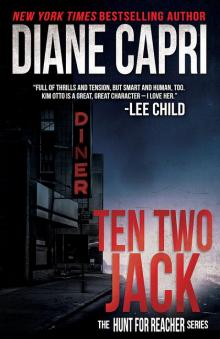 Ten Two Jack
Ten Two Jack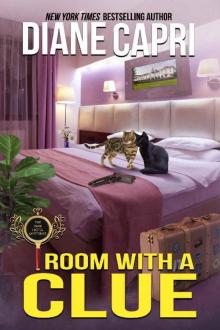 Room with a Clue: A Park Hotel Mystery (The Park Hotel Mysteries Book 3)
Room with a Clue: A Park Hotel Mystery (The Park Hotel Mysteries Book 3)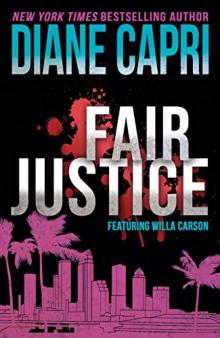 Fair Justice
Fair Justice Fatal Dawn
Fatal Dawn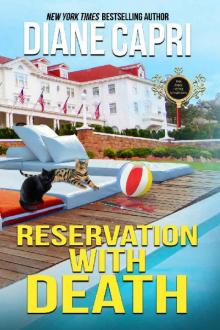 Reservation with Death
Reservation with Death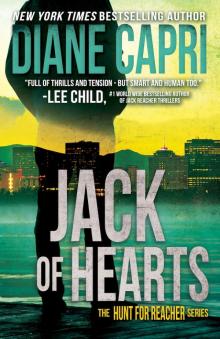 Jack of Hearts
Jack of Hearts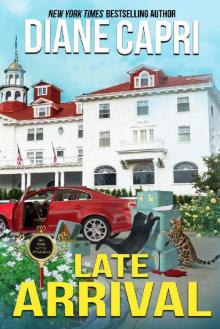 Late Arrival: A Park Hotel Mystery (The Park Hotel Mysteries Book 4)
Late Arrival: A Park Hotel Mystery (The Park Hotel Mysteries Book 4)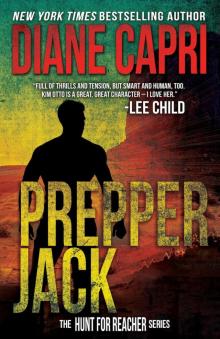 Prepper Jack
Prepper Jack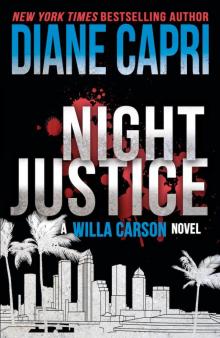 Night Justice
Night Justice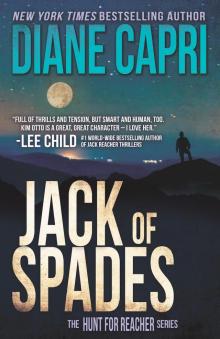 Jack of Spades
Jack of Spades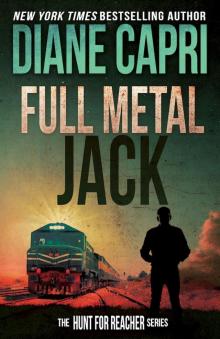 Full Metal Jack
Full Metal Jack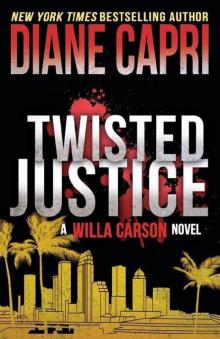 Twisted Justice
Twisted Justice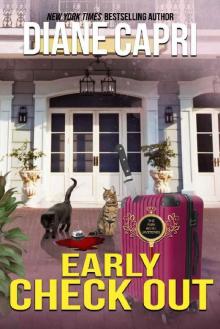 Early Check Out
Early Check Out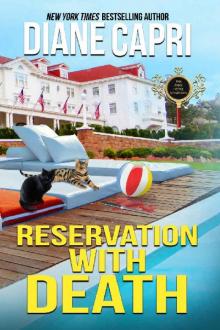 Reservation with Death: A Park Hotel Mystery (The Park Hotel Mysteries Book 1)
Reservation with Death: A Park Hotel Mystery (The Park Hotel Mysteries Book 1) Licensed to Thrill: Volume 3
Licensed to Thrill: Volume 3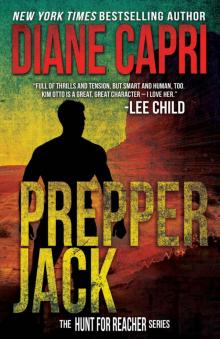 Prepper Jack: Hunting Lee Child's Jack Reacher (The Hunt For Jack Reacher Series Book 12)
Prepper Jack: Hunting Lee Child's Jack Reacher (The Hunt For Jack Reacher Series Book 12) False Truth 4 (Jordan Fox Mysteries)
False Truth 4 (Jordan Fox Mysteries)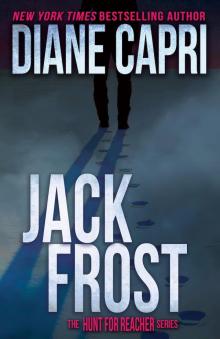 Jack Frost
Jack Frost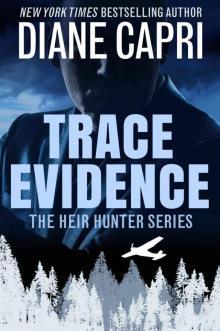 Trace Evidence (The Heir Hunter Book 2)
Trace Evidence (The Heir Hunter Book 2) Fatal Heat
Fatal Heat Black Jack
Black Jack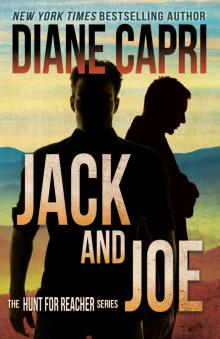 Jack and Joe
Jack and Joe False Truth 3 (Jordan Fox Mysteries)
False Truth 3 (Jordan Fox Mysteries)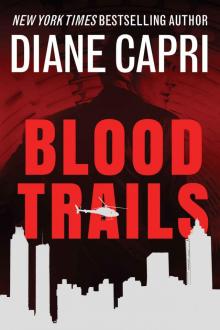 Blood Trails
Blood Trails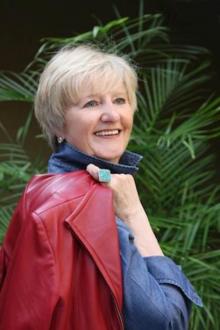 Don't Know Jack
Don't Know Jack Licensed to Thrill: Volume 2
Licensed to Thrill: Volume 2 Fatal Enemy
Fatal Enemy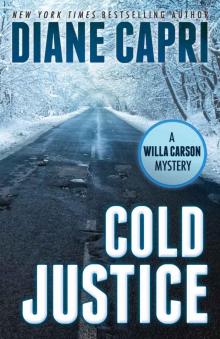 Cold Justice: A Judge Willa Carson Mystery (The Hunt for Justice)
Cold Justice: A Judge Willa Carson Mystery (The Hunt for Justice) Get Back Jack
Get Back Jack False Truth 2 (Jordan Fox Mysteries Series)
False Truth 2 (Jordan Fox Mysteries Series)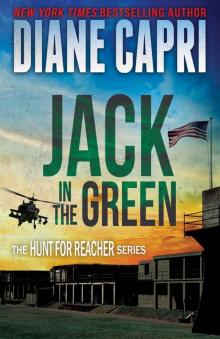 Jack in the Green
Jack in the Green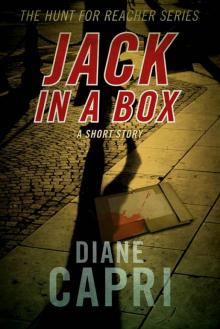 Jack In A Box
Jack In A Box![[Jess Kimball 01.0 - 02.0] Fatal Starts Read online](http://i1.bookreadfree.com/i1/04/01/jess_kimball_01_0_-_02_0_fatal_starts_preview.jpg) [Jess Kimball 01.0 - 02.0] Fatal Starts
[Jess Kimball 01.0 - 02.0] Fatal Starts False Truth 8-10: 3 Action-Packed Romantic Detective Mystery Thrillers To Keep You Up All Night (Jordan Fox Mysteries Series)
False Truth 8-10: 3 Action-Packed Romantic Detective Mystery Thrillers To Keep You Up All Night (Jordan Fox Mysteries Series) False Truth 1 (Jordan Fox Mysteries)
False Truth 1 (Jordan Fox Mysteries) Fatal Fall
Fatal Fall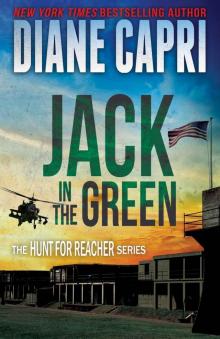 Jack in the Green (The Hunt for Jack Reacher Series)
Jack in the Green (The Hunt for Jack Reacher Series)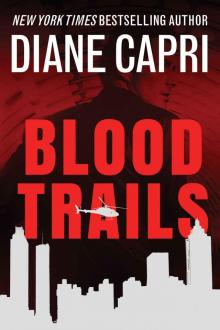 Blood Trails (The Heir Hunter Book 1)
Blood Trails (The Heir Hunter Book 1) Hit the Road Jack
Hit the Road Jack Jack and Kill (Hunt For Reacher (Short Story #2))
Jack and Kill (Hunt For Reacher (Short Story #2))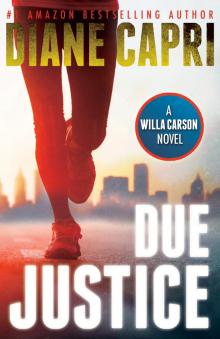 Due Justice
Due Justice False Truth 10 (Jordan Fox Mysteries Series)
False Truth 10 (Jordan Fox Mysteries Series) Florida Is Murder (Due Justice and Surface Tension Mystery Double Feature) (Florida Mystery Double Feature)
Florida Is Murder (Due Justice and Surface Tension Mystery Double Feature) (Florida Mystery Double Feature) False Truth 7 (Jordan Fox Mysteries)
False Truth 7 (Jordan Fox Mysteries) Fatal Bond
Fatal Bond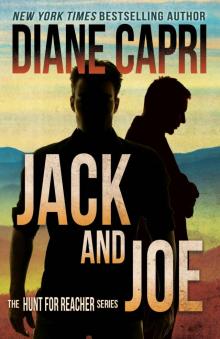 Jack and Joe: Hunt for Jack Reacher Series (The Hunt for Jack Reacher Series Book 6)
Jack and Joe: Hunt for Jack Reacher Series (The Hunt for Jack Reacher Series Book 6) Fatal Demand: A Jess Kimball Thriller
Fatal Demand: A Jess Kimball Thriller![[Jordan Fox 01.0 - 04.0] False Truth Read online](http://i1.bookreadfree.com/i2/04/08/jordan_fox_01_0_-_04_0_false_truth_preview.jpg) [Jordan Fox 01.0 - 04.0] False Truth
[Jordan Fox 01.0 - 04.0] False Truth False Truth 6 (Jordan Fox Mysteries)
False Truth 6 (Jordan Fox Mysteries) Deadly Dozen: 12 Mysteries/Thrillers
Deadly Dozen: 12 Mysteries/Thrillers Jack and Kill
Jack and Kill Fatal Edge: A Jess Kimball Thriller (The Jess Kimball Thrillers Series Book 6)
Fatal Edge: A Jess Kimball Thriller (The Jess Kimball Thrillers Series Book 6)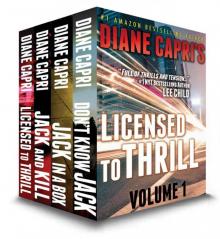 Licensed to Thrill: Volume 1
Licensed to Thrill: Volume 1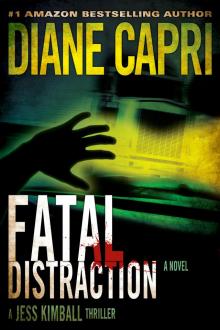 Fatal Distraction
Fatal Distraction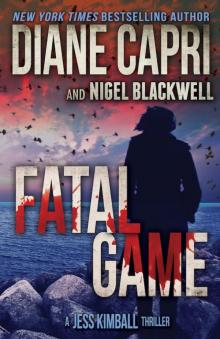 Fatal Game
Fatal Game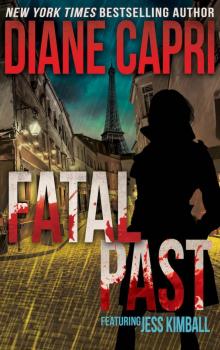 Fatal Past: A Jess Kimball Thriller
Fatal Past: A Jess Kimball Thriller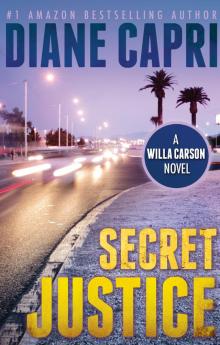 Secret Justice
Secret Justice Get Back Jack (The Hunt for Jack Reacher 4)
Get Back Jack (The Hunt for Jack Reacher 4)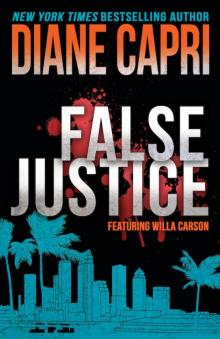 False Justice
False Justice